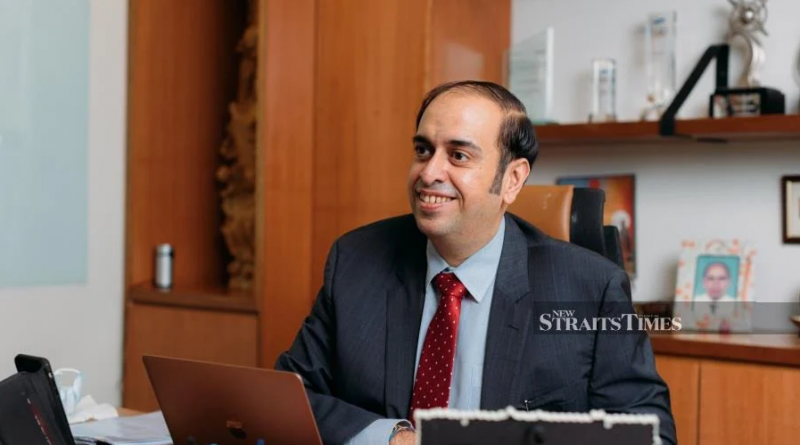SME Association: SMEs need to realise role of technology as strategic business enabler
KUALA LUMPUR: Small and medium enterprises (SMEs) must start viewing technology as an investment in order to survive and thrive in the post-movement control order (MCO) environment.
SME Association of Malaysia national vice president Chin Chee Seong said even as MCO restrictions are being progressively uplifted, it is no longer business as usual with SMEs having borne the brunt of the impact brought forth by Covid-19.
“SMEs are the cornerstone of the local economy – in Malaysia, about 98.5 per cent of registered businesses are SMEs, accounting for 37.1 per cent of gross development product and 66 per cent of total employment – and it’s crucial that they need to adapt to the new normal,” said Chin.
“The pandemic has transformed the business environment fundamentally and SMEs must start rebuilding the new foundations for their businesses now to emerge stronger and more resilient,” he said.
Covid-19 has erased any doubt that technology is the way forward, explained Chin.
“While SMEs have already started to evolve to digital companies, those that have moved very gradually to accommodate this have found themselves to be disproportionately affected by the current situation.
“Today, what’s extremely crucial is for SMEs to realise the role of technology as a strategic business enabler,” Chin said.
Meanwhile, The National Tech Association of Malaysia (PIKOM) immediate past chairman Ganesh Kumar Bangah observed that the acceleration of digital economy has opened SMEs up to more varied and intense competition.
“In a market full of choices, the customer is king and SMEs must also be mindful of the selling experience they are providing,” said Ganesh.
“There has been a shift in consumer buying behaviour as demonstrated with the e-commerce boom during the MCO.
“Many business transactions were already being done online, and the MCO was the catalyst for many Malaysians to shop and sell online,” he said.
For Ganesh, it’s never too late for SMEs who still have yet to develop a commanding online presence.
“If SMEs are intimidated or not familiar with technology, they could always look at outsourcing their e-commerce needs to build strong online presence,” he said.
“That way, they concentrate on what they do best – running the business – while letting the outsourced company take care of their IT and e-commerce needs”.
He also foresees the area of ‘live commerce’ taking off very soon in Malaysia.
Live commerce is essentially the fusion of social media and e-commerce, within a video or streaming environment.
In 2018 alone, live commerce generated over RMB100 billion (RM60 billion) in transactions on Taobao, Alibaba’s premier C2C ecommerce marketplace in China.
For Singles Day 2019 alone, live commerce generated a whopping RMB20 billion (RM12 billion).
“Hence, SMEs need to quickly look at this avenue or they would lose out to others with ‘first mover’ advantage”, Ganesh said.
Now that the world is moving towards a more virtual, cashless, contactless environment, Chin said another issue that’s most talked-about with SMEs is about security.
“Making a secure and private transaction is not only crucial to the consumer, but will determine how effective the interface on websites are, or if the information regarding customer privacy is well protected, and how SMEs should act if any problem is encountered,” said Chin.
“The government has introduced many initiatives involving digital technologies and ICT applications to local businesses. Whilst not entirely converting all the processes into the electronic mode, it is useful in expediting business between the Government and the public,” said Chin.
He pointed out that the an upcoming SME e-Fair will highly benefit SMEs since the platform will enable them to connect with various solution providers.
“I believe that, with getting the help from the right solution providers, SMEs are able to emerge stronger post-MCO which in turn will result in better contribution to the national economy,” said Chin.
Source: NST

